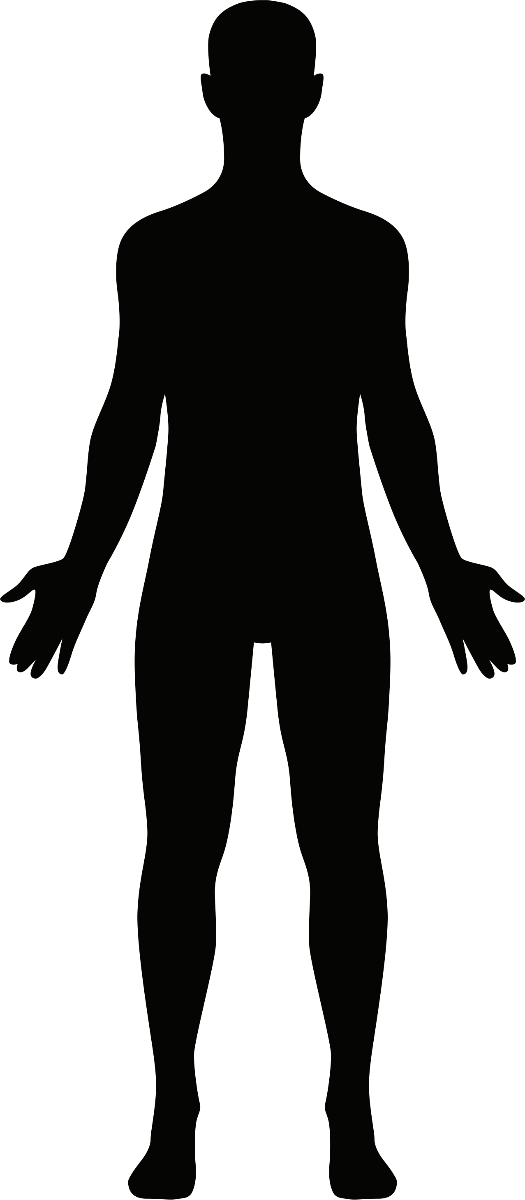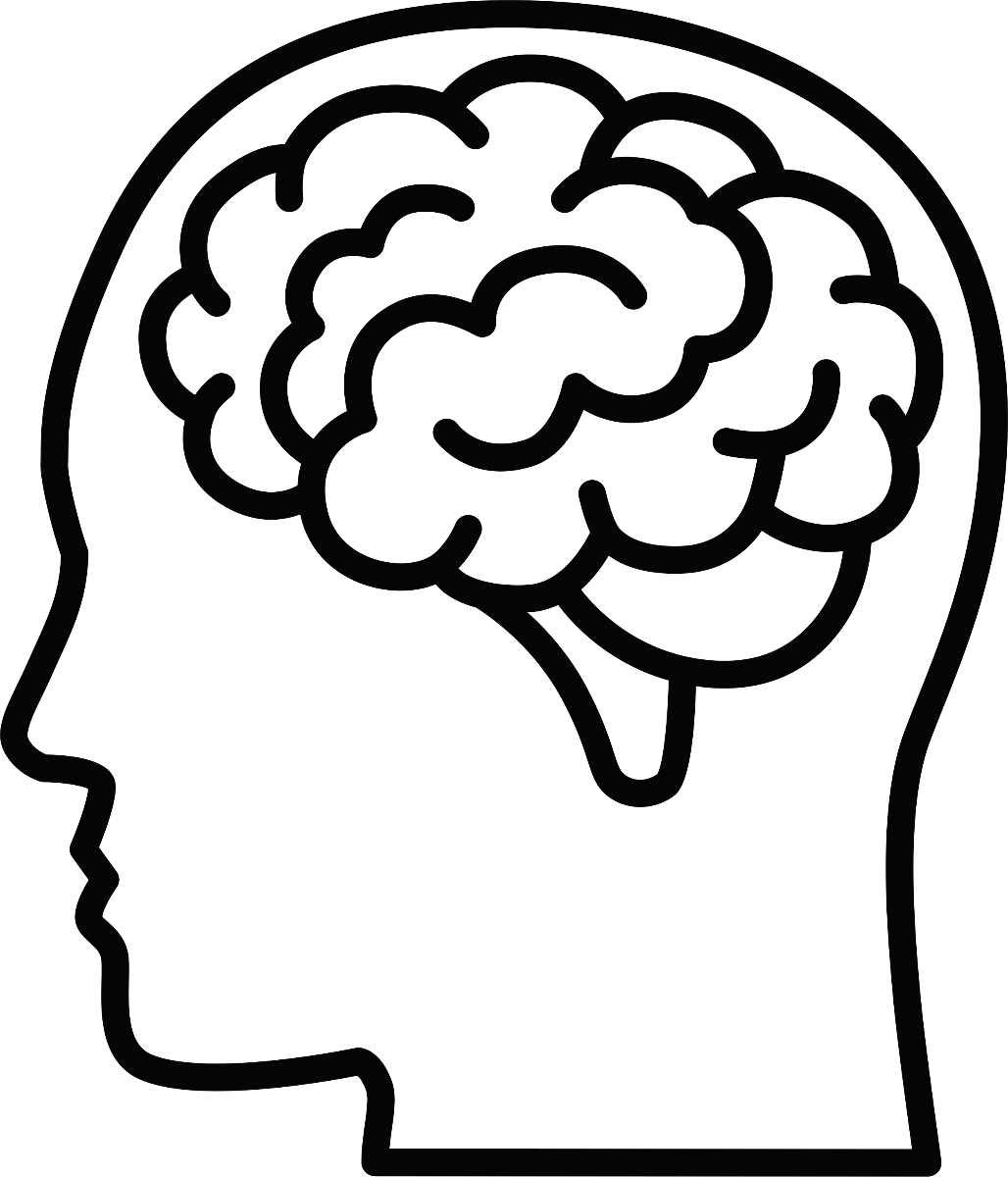Everyone feels stressed sometimes, but what exactly is stress? Do you know what causes stress? Or why stress can have long-term negative health effects, but can also sometimes be a good thing? Learn everything you need to know about stress in this article.
Definition of Stress
Physiological Causes of Stress
What causes stress? What’s a stressor?
Symptoms of Stress
Types of Stress
Statistics About Stress
Stress vs. Anxiety
The Negative Long-Term Effects of Stress
How to Reduce Your Stress
Definition of Stress
The Merriam-Webster dictionary defines stress as “a physical, chemical, or emotional factor that causes bodily or mental tension and may be a factor in disease causation”.1
The Cleveland Clinic’s definition is a little different from the dictionary’s. They call stress “a normal reaction the body has when changes occur. It can respond to these changes physically, mentally, or emotionally.”2
And the DSM-5 (Diagnostic and Statistical Manual of Mental Disorders Fifth Edition) defines stress as “the pattern of specific and nonspecific responses a person makes to stimulus events that disturb his or her equilibrium and tax or exceed his or her ability to cope”.3
Even if there isn’t a clear, agreed upon definition of stress, everyone feels stressed sometimes and you know what it feels like when you’re stressed out. What makes you feel “stressed”? The answer lies in both physiological causes and stressors.
Physiological Causes of Stress
Stress occurs as part of your body’s reaction to a perceived threat/challenge, which is identified as a stressor. Your body goes into fight-or-flight mode as the nervous and endocrine systems produce epinephrine, norepinephrine, and cortisol.
Epinephrine and norepinephrine lead to an increased heart rate, respiration rate, blood pressure, perspiration, and energy productions. Cortisol also increases your energy production and also suppresses immune function.
Additionally, your body begins to produce β-endorphin (the body’s natural pain killer) and your sense acuity is increased as well.
The exact stress response can vary based on the person and the stressor, but this is the general physiological pattern that leads to you feeling stressed.
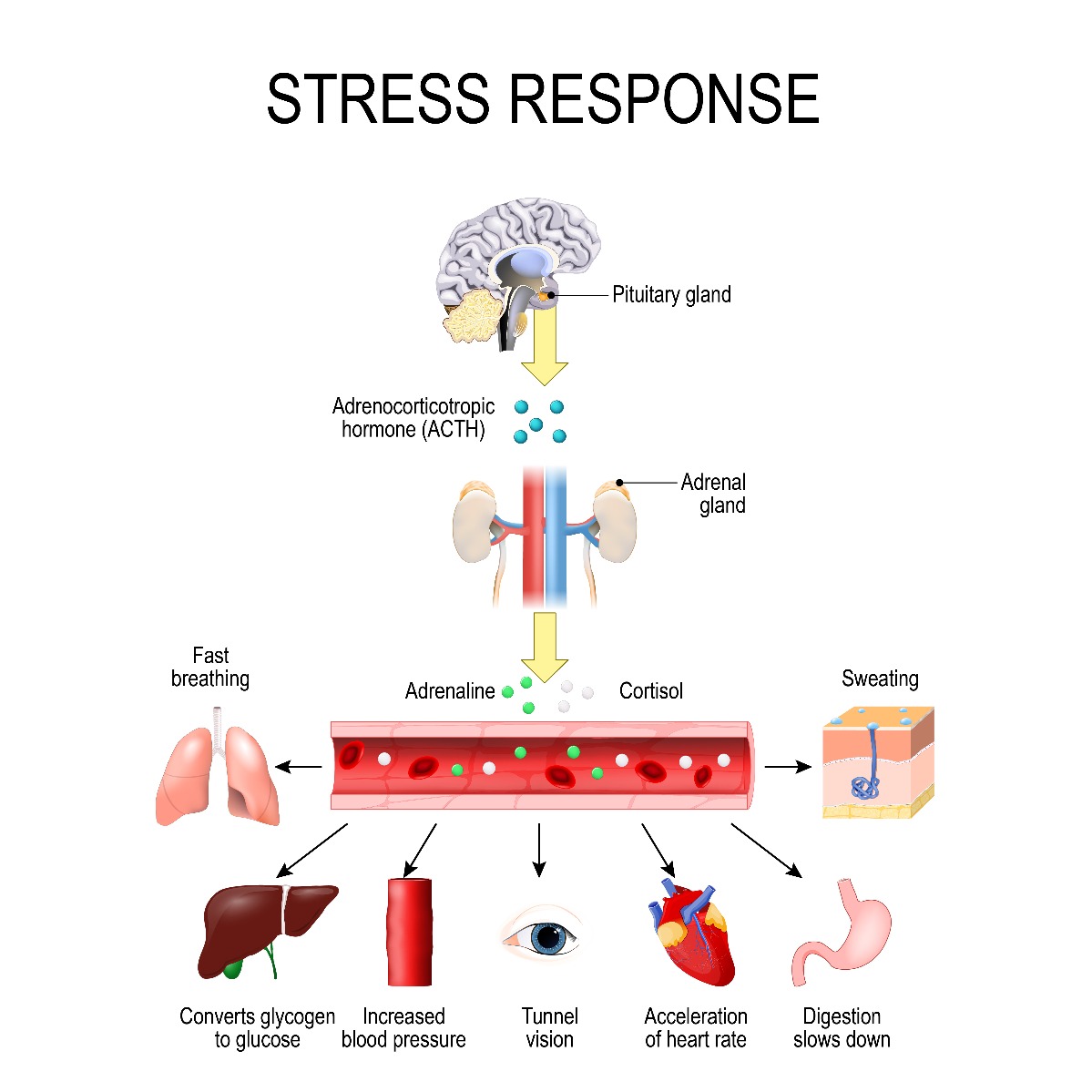
What causes stress? What’s a stressor?
Stress is the result of stressors which prompt your body’s response. Everyone has different stressors. For some people going shopping at the mall is a fun afternoon activity, for others the crowds (a potential stressor) can turn a shopping trip into a stressful outing.
People don’t always find the same situations stressful. Another example? Picture a roller coaster. Some people eagerly wait for the thrill of sitting in the front row, ride it laughing and screaming, and get off ready to go again. Others reluctantly sit down, hold on white-knuckled with their eyes squeezed shut, and get off ready to never do that again. Is the roller coaster a stressor? That depends on how you react.
Common stressors include moving into a new home, getting married, divorce, death of a loved one, getting promoted, flying, public speaking, work, blind dates, pregnancy, rent increases, and many more events and situations that can cause positive or negative stress (later on we’ll talk about how some stress can actually be positive).
Symptoms of Stress
Symptoms of stress can vary person to person, but common symptoms include:5
|
|
|
|
|
|
|
|
Types of Stress
Eustress vs. Distress
Both positive and negative situations can cause stress. Positive stress, like the stress of a new baby or a promotion is called eustress. Negative stress, like the stress of a divorce or the death of a loved one, is called distress.
Some stressors can create a situation that starts as positive stress and turns into negative stress. If you need to give a presentation at work or at school, at first you might be a little nervous and stressed out. This eustress can lead you to be well prepared and practiced. If you’re so stressed that you get sick and can’t present, you’ve crossed the line into distress.
This graph shows how increased stress results in increased productivity, until the stress peaks and productivity rapidly descends.
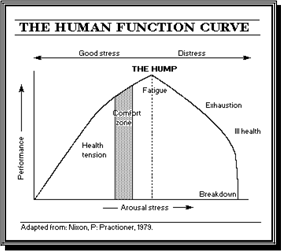
Image source:The American Institute of Stress 11
Acute vs. Chronic Stress
Stress can also be categorized as either acute or chronic.
Acute stress occurs when the stressor is encountered and dissipates once the stressor is removed or the situation is managed.
For example, you might experience acute stress when your car gets a flat tire and you’re going to miss an important meeting. But your stress subsides once you conference into the meeting and get your tire changed. Or perhaps you experience acute stress when preparing for a first date, but a few minutes into the date the ice is broken and you’re no longer stressed.
If you experience acute stress on a regular basis (due to overcommitting, constant worrying, etc.) it becomes acute episodic stress and can start to negatively impact your health
Chronic stress can also impact your health and isn’t resolved as easily. This type of stress results due to the constant presence of a major stressor or stressors. Examples include worries about money, work, or the economy. Major life events, like divorce, the death of a loved one, or moving can also cause chronic stress.
Statistics About Stress
5 Statistics About Stress
- Nearly 80% of Americans frequently or sometimes feel stressed throughout their daily life.6
- A 2011 survey found that 44% of Americans' stress levels had increased over the past five years.7
- The same study reported that one in three children experienced a physical symptom of stress in the past month.7
- A 2017 survey found that over 50% of Americans use exercise or physical activity to cope with stress and 12% used yoga or meditation.8
- A 2018 poll found that Americans are among the most stressed people in the world, with Americans reporting the highest levels of stress in a decade.9
3 Statistics About Stress at Work
- 80% of workers feel stressed at work and nearly 50% need help learning how to manage their stress (42% claim their co-workers need help too).10
- 40% of workers feel their job is very stressful.10
- 25% report that their job is the number one stressor in their life.10
Stress vs. Anxiety
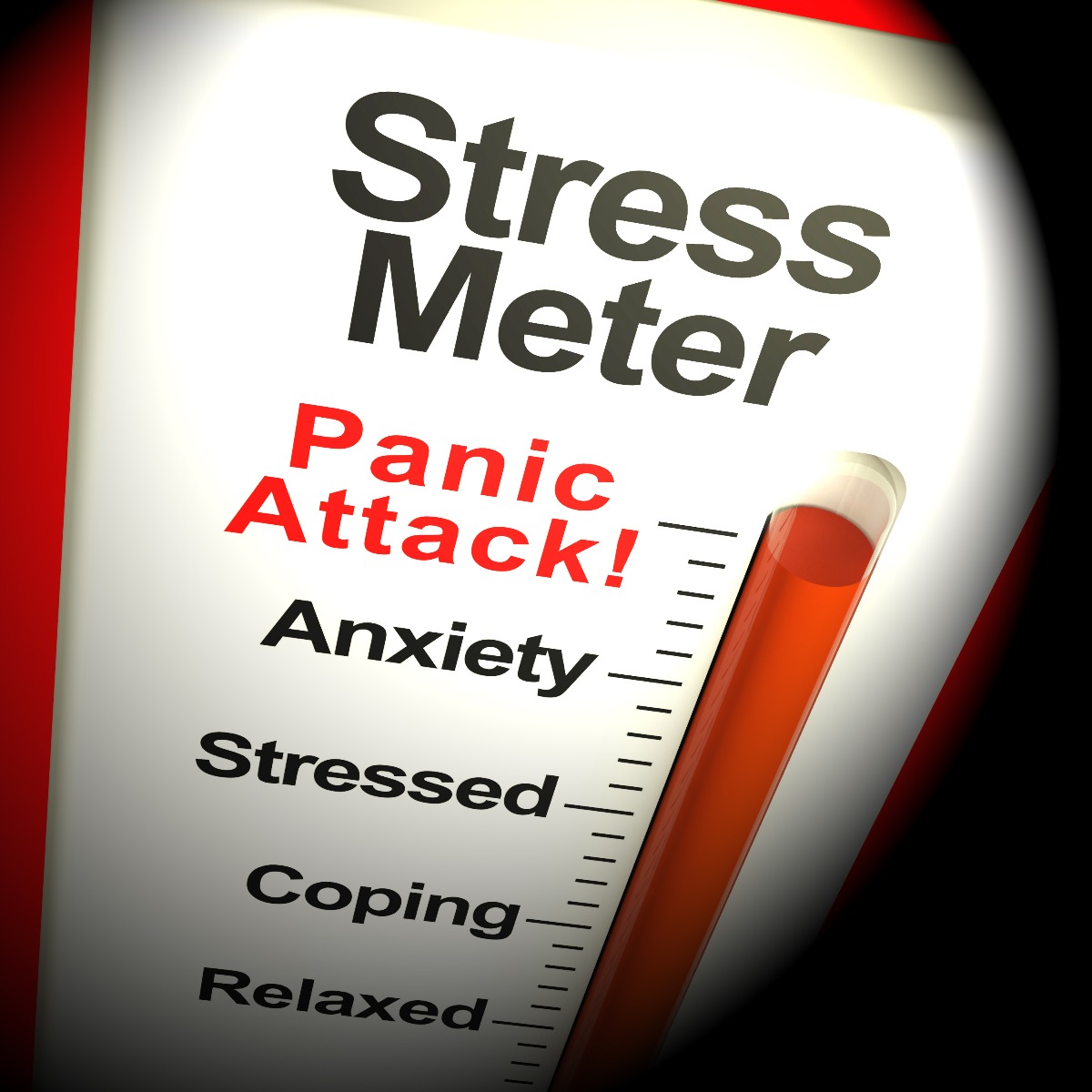
What’s the difference between stress and anxiety? While people often confuse the two and use one word when they really mean the other, there is a difference.
Stress has to do with how we cope with stressors that affect us. It tends to be externally generated from outside pressures (work deadlines, traffic, etc.) and refer to a present demand ( a current deadline for work, needing to pick up the dry cleaning before the cleaners closes and pick up your child on time, etc.).
Because stress is due to external pressures, it’s typically thought of as “out of our control” and doesn’t usually generate feelings of shame or responsibility. Sometimes it’s even seen as a badge of honor. For example, consider workers (common in finance and law) who talk about how stressful their jobs are, but also proud to claim they are working over seventy hours a week.
In contrast, anxiety is internally generated. The DSM-5 defines it as “the apprehensive anticipation of future danger or misfortune accompanied by a feeling of worry, distress, and/or somatic symptoms of tension. The focus of anticipated danger may be internal or external.”3
Anxiety is often brought on by stress and our feelings about its potential impact. It’s often generated through internal questions like “Will I be able to handle this?” and focuses more on our feelings than our experiences.
Anxiety also typically focuses on the future. It’s much more concerned about what might happen, than concerns about what’s happening now. Anxiety is also commonly thought of as more personal and shameful, rather than a source of pride.
However, both stress and anxiety create similar physiological fight-or-flight responses in your body. And sometimes the two overlap, so stress over a work deadline today can become anxiety about future work projects and deadlines.
You can talk to your doctor about ways to determine if you have stress or anxiety and how to manage it.
The Negative Long-Term Effects of Stress
If everyone is stressed sometimes, what’s the big deal? While occasional stress is normal, episodic acute stress or chronic stress can have long-term health effects. Chronic stress can cause or worsen serious health problems including:
- Cardiovascular Disease
- Heart disease
- High blood pressure
- Stroke
- Heart Attack
- Abnormal heart rhythms
- Mental health problems
- Depression
- Anxiety
- Personality disorders
- Skin and hair problems
- Acne
- Psoriasis
- Eczema
- Permanent hair loss
- Obesity and other eating disorders
- Menstrual problems
- Sexual dysfunction
- Impotence
- Loss of sexual desire
- Gastrointestinal problems
- GERD (gastroesophageal reflux disease, “heartburn”)
- Gastritis
- Ulcerative colitis
- Irritable colon
How to Reduce Your Stress
The possible long-term effects of chronic stress make it crucial to talk to a medical professional about possible treatments including counseling, relaxation or stress-management techniques, or lifestyle changes. Your doctor can also help determine if you have chronic stress or anxiety and how to treat your condition.
If you just feel stressed occasionally, small changes can make a big difference. Check out our top seven ways to reduce your stress.
References
- Merriam-Webster. (n.d.). Stress. Retrieved from https://bit.ly/2ELgdX1
- Cleveland Clinic. (2015). Stress. Retrieved from https://cle.clinic/2GX2Y5Z
- Clark, A.H. (2019). Curious About the Difference Between Stress and Anxiety? Retrieved fromhttps://bit.ly/2kcgKZ0
- Jackson, E.M. (2013). STRESS RELIEF: The Role of Exercise in Stress Management. Retrieved from https://bit.ly/2m2IEHo
- Casarella, J. (2019). Stress Symptoms: Effects of Stress of the Body. Retrieved from https://wb.md/2wcIxKJ
- Saad, L. (2017). Eight in 10 Americans Afflicted by Stress. Retrieved from https://bit.ly/2kc3Ry5
- American Psychological Association. (2011). Stressed in America. Retrieved from https://bit.ly/2kFi9ri
- American Psychological Association. (2017). Stress in American The State of Our Nation. https://bit.ly/2xbO6uf
- Chokshi, N. (2019). Americans Are Among the Most Stressed People in the World, Poll Finds. Retrieved from https://nyti.ms/2vrNJKJ
- The American Institute of Stress. (n.d.). Workplace Stress. Retrieved from https://bit.ly/2Uac2qR
- The American Institute of Stress. (n.d.). What is stress? Retrieved from https://bit.ly/2m83g0Z
Medical Disclaimer: The information provided on this site, including text, graphics, images and other material, are for informational purposes only and are not intended to substitute for professional medical advice, diagnosis or treatment. Always seek the advice of your physician or other healthcare professional with any questions or concerns you may have regarding your condition.








 France
France Australia
Australia

